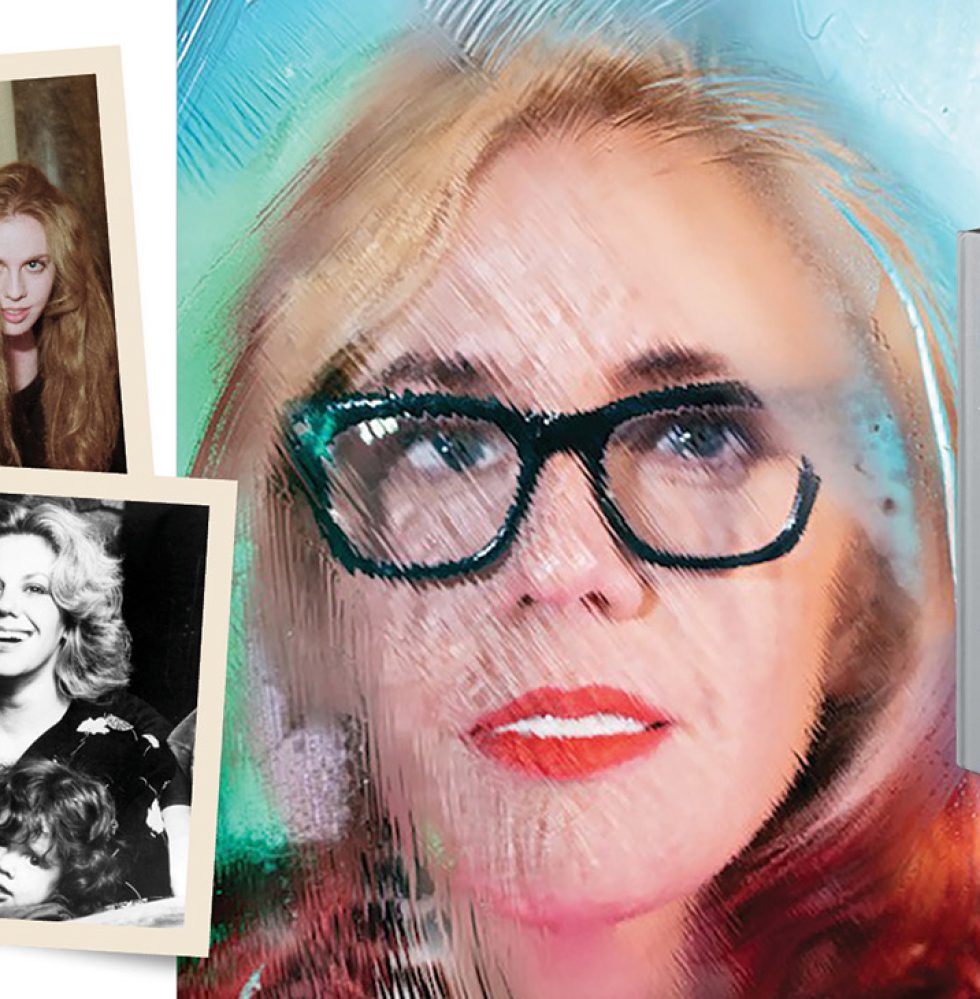
Molly Jong-Fast understands the circle of life. “I know that our parents are going to die,” she says matter-of-factly. “I know that’s how this is all supposed to go.” But still, when she learned that her mother had dementia during the pandemic, it rocked her. That emotional experience is part of the order of things, too, but Jong-Fast’s parental relationships are a bit more complicated than most people’s. She is the daughter of Erica Jong, a famous author and feminist whose first novel, 1973’s Fear of Flying, remains one of the seminal explorations of the second wave. (Adding to her literary pedigree, Jong-Fast’s paternal grandfather is Spartacus novelist Howard Fast.) Jong also is an alcoholic who long used her daughter’s life in her work. So when Jong-Fast, a journalist and MSNBC political analyst, found herself in the throes of caretaking, she decided to return her mother’s dubious favor by sharing her version of their story in the revelatory How to Lose Your Mother: A Daughter’s Memoir. She recently spoke with THR.
You’ve been open about being really scared to put this book into the world. Can you explain that?
If I was going to write a book, I wanted it to be really hefty, something that was more than a magazine article. I didn’t want people to feel like they wasted their money buying my book. One publisher actually pitched me the book idea “How Women Stopped Trump.” It’s funny because someone else wound up writing that book, and I couldn’t believe they got someone to do it. I normally write political stuff, which is completely different than this. It’s very weird to be writing about myself.
In the book, you’re contending with your privilege. You seem worried people will think you’re complaining about high-class problems.
I know I’m super privileged, and that as awful as what I’ve gone through is, it’s still better than it would be if I had to use SNAP to pay for all my food. I’ve been sober since I was 19, so I have a lot of perspective, but I also knew that my experience was still really bad. I thought, the least I could do is to write about it so that other people could use it to get through it themselves. I was reading this article about how Generation X people don’t really know how to talk about ourselves. We’re the ones nobody cares about, and we all have kids and our parents are boomers who killed the Earth and are taking it all with them as they go. So we’re a pre- and post-apocalyptic generation. But this feels like using that shitty-ness to show people that you can get through anything.
Do you think anyone in the Trump sphere is going to read this book?
You can be a Trumper and be just fine with this book — besides your undying belief that I myself am horrible. But this is not a political book. Unless believing in life-saving drugs is political, which for some people it is.
You write a lot about how much you enjoy doing TV appearances and what a salve it was for you while your husband was sick with cancer. Does it still offer that relief for you?
I still love it. It’s probably my own failing. I also think part of it comes from growing up with a writer parent because going on television is the highest form of fame when you’re a writer. I also like that you have to stay in the moment — you cannot be on your phone. You can also interview people who are incredibly interesting. I think of, during the campaign, when I interviewed Tim Walz and he said to me, “I think I might be the vice presidential pick.”
Are you involved in the adaptation process for your mom’s books?
Taffy Brodesser-Akner has written the Erica Jong biopic, which is a dream. I haven’t read the script, but I’m sure it’s amazing. And Amanda Seyfried is attached to play my mom, Rebecca Hall is going to direct it, and Steven Soderbergh is producing. All my mom ever wanted was a movie. I think she’s too out of it to know, but I will be delighted for her.
This story appeared in the June 4 issue of The Hollywood Reporter magazine. Click here to subscribe.



